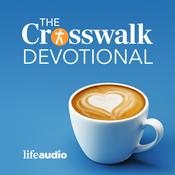What if your job — even the one you don’t love — is actually sacred?
In this episode, we unpack what it truly means to “work for the Lord.” Drawing from 1 Corinthians 15:58, we explore how every task, every shift, and every responsibility can become an act of worship when done with the right heart posture.
What We Discuss
Why every job can glorify God
Working through difficult seasons with faithfulness
Serving Jesus even when serving a challenging boss
The difference between working for approval vs. working from purpose
Why work is a blessing — not a burden
How Jesus modeled servant leadership
This episode is sponsored by Trinity Debt Management. If you are struggling with debt call Trinity today. Trinity's counselors have the knowledge and resources to make a difference. Our intention is to help people become debt-free, and most importantly, remain debt-free for keeps!" If your debt has you down, we should talk. Call us at 1-800-793-8548 | https://trinitycredit.org
TrinityCredit – Call us at 1-800-793-8548. Whether we're helping people pay off their unsecured debt or offering assistance to those behind in their mortgage payments. https://trinitycredit.org
Full Transcript Below:
Work for the Lord
By: Vivian Bricker
Bible Reading:
“Therefore, my dear brothers and sisters, stand firm. Let nothing move you. Always give yourselves fully to the work of the Lord, because you know that your labor in the Lord is not in vain” (1 Corinthians 15:58).
Like most people, I have had many different jobs. Some of these jobs I really enjoyed, but others, not so much. However, in every job, I have tried to do my best. For example, a few years ago I worked at an inn. It was extremely difficult, since I struggle with contamination-type OCD (obsessive compulsive disorder).
The responsibility of an assistant innkeeper means cleaning anything and everything—changing bed sheets, washing bed sheets, cleaning bathrooms, washing floors, dusting, and any other housework that needs to be done. As someone with OCD, this was incredibly stressful. However, by the grace of God, I lasted the entire summer. I tried my best every day, and I know that I served the Lord through my work.
Someone might say, “No, you were working for your boss.” While this is true, I was also working for Jesus. In everything we do, we need to work as though we are working for the Lord (Colossians 3:23-24). We are serving Jesus in any job we put our hands to. This is why we need to work at every task with our whole heart. Rather than becoming lazy, we need to glorify God in our work.
Maybe you are at a job right now that is similar to when I worked at the inn—you don’t like it, and you can’t wait to get off each day. If this is true, know that you won’t be at this job forever. For the time being, continue to do your best and strive to serve Jesus through your work. Even if your boss is not kind or the job is taxing, try your best to show Jesus’ love to everyone around you.
Jesus Himself took on the nature of a servant (Philippians 2:5–8). We need to follow His example by also taking on the nature of a servant. We should not view any job as inferior. Sometimes we have to take a job because we have no other choice. God does not call us to be idle or unproductive in our lives. Instead, He wants us to work and serve Him through our dedication to doing what is right.
Many people have a distorted view of work. They think work is a bad thing. This is not true—work is a blessing from God. Working and being able to provide for ourselves is a good thing. We never need to view work in a negative light, because it can help us grow, build a strong work ethic, and produce endurance. Through our work, we can become more dependent on God.
Intersecting Faith & Life:
The Apostle Paul tells us, “Therefore, my dear brothers and sisters, stand firm. Let nothing move you. Always give yourselves fully to the work of the Lord, because you know that your labor in the Lord is not in vain” (1 Corinthians 15:58). As Paul says in this passage, we need to give ourselves fully to the work of the Lord as our hard work is not in vain. Working for the Lord will bring Him glory and point others to Him.
Many people think the “work of the Lord” only consists of pastors, Sunday school teachers, or missionaries, but this is not true. The “work of the Lord” can be anything, as long as we are serving Jesus through our work. Therefore, even regular jobs, such as working at a hotel, a library, or a department store, can all bring glory to God if we are faithfully serving Him.
As Christ followers, we must ask ourselves whether or not we will serve God in our work. If we become lazy and unproductive in our work, we are not working to the glory of the Lord. If we find ourselves in this situation, we need to bring our hearts back to Jesus. Every job deserves our full attention and productivity. Loving God and serving Him will help us to truly work for Him and not give up when times are hard.
Continue to work for Him because your labor is not in vain. Jesus sees all the challenges you are going through. Even when days are tough, choose to live for Him, love Him, and serve Him faithfully in your work and in your life.
What are some ways you can glorify God in your work? List a few here.
Further Reading:
1 Corinthians 10:31
1 Thessalonians 4:10-12
Colossians 3:17
Discover more Christian podcasts at lifeaudio.com and inquire about advertising opportunities at lifeaudio.com/contact-us.



